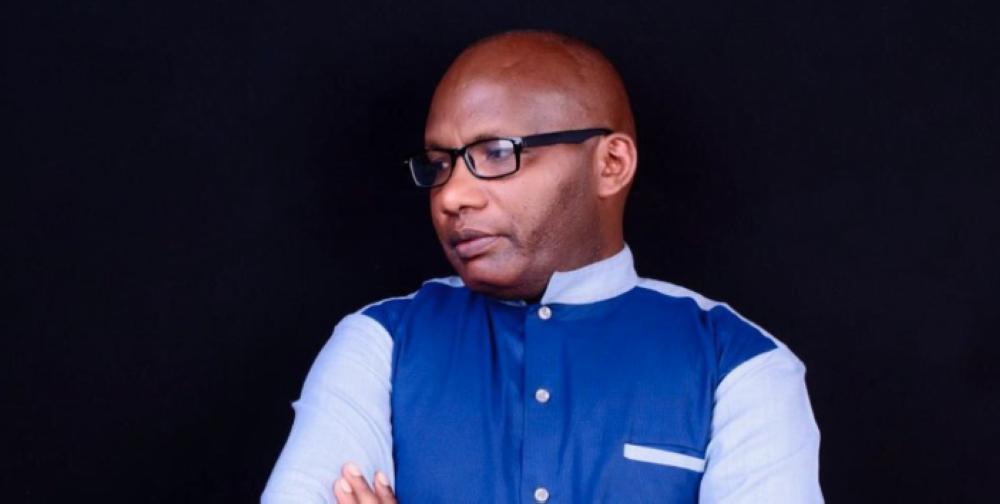Africa-Press – Rwanda. Belgium’s interests in DR Congo extend beyond the current crisis and the destabilisation of Rwanda.
According to research, these interests are deeply rooted in a colonial-era agenda aimed at the marginalisation and extermination of Nilotic communities.
Belgian colonialists viewed Nilotic communities—believed to have migrated from the Nile Valley—as resistant to colonial rule and difficult to manipulate through Western propaganda. Unlike other groups that colonial powers found easier to govern, the Nilotic were seen as a challenge to European dominance.
Jean Laurent Gatera, a Rwandan researcher and expert in Peace Studies and Conflict Transformation, has extensively analyzed the DR Congo crisis in his book, ‘The Genesis and Conflict Trends in Eastern Democratic Republic of Congo: The Causes and Consequences of Kivu Conflict (2024).’
Speaking to The New Times, Gatera explained that the crisis is deeply embedded in colonial-era divisions and the political maneuvers of post-independence regimes.
He argues that the “Bantu vs. Nilotic” ideology, particularly as promoted by the Belgians, continues to shape conflicts in the region.
Gatera suggests that Belgium’s enduring involvement in DR Congo goes beyond economic exploitation. The country has long supported efforts to eliminate Nilotic communities, a strategy dating back to colonial rule. European colonisers effectively used a divide-and-rule strategy, entrenching ethnic hatred that persists today.
This ideology played a key role in the 1994 Genocide against the Tutsi in Rwanda and continues to fuel conflicts in DR Congo. Belgium has supported the Congolese army despite being aware that it works hand in hand with militias such as the FDLR, a group responsible for the Genocide Against the Tusti and has continued its genocidal agenda in DR Congo.
The Legacy of ethnic classification and persecution
Belgian colonisers associated Nilotic people with historical resistance movements, drawing comparisons to Ethiopians and Egyptians. This colonial perspective influenced policies and social structures in the Great Lakes region, fueling long-standing tensions.
The persecution and displacement of Kinyarwandophone communities in DR Congo, often attributed to colonial border-drawing, is deeply intertwined with these ideological divisions. Groups such as the Hema in Ituri province, the Banyamulenge in South Kivu, and the Tutsi in North Kivu were labeled as Nilotic/Cushitic and thus perceived as adversaries.
Militia groups such as the FDLR and Wazalendo have targeted Kinyarwandophones and others based on perceived physical features and cultural traits linked to Tutsi identity.
“The Hema, for example, have been attacked due to their supposed resemblance to the Tutsi and alleged support for the M23 rebel group, which fights for human rights and against poor governance,” Gatera explains.
Victims of these conflicts face killings, torture, displacement, and even acts of cannibalism, with their suffering largely ignored by the international community.
Gatera says many observers oversimplify the crisis by attributing it solely to DR Congo’s mineral wealth, overlooking the deeper ethnic and ideological factors at play.
The role of mercenaries in DR Congo’s conflicts
Historically, DR Congo has relied on foreign mercenaries to maintain control. From King Leopold II’s brutal colonial rule to post-independence leaders like Mobutu Sese Seko, Congolese regimes have consistently enlisted European mercenaries, armed militias, and foreign troops.
Gatera traces this pattern back to the late 19th century, when Leopold seized vast territories during the Berlin Conference of 1884–1885. His administration imposed severe violence on those who resisted colonial rule. Even after independence, Belgium maintained indirect control over its former colony, influencing governance and suppressing pro-African movements.
According to the researcher, the plan to exterminate the Tutsi in Rwanda and those who fled to DR Congo was first initiated by former Rwandan President Grégoire Kayibanda and his Congolese counterparts. It was later implemented under President Juvénal Habyarimana and former Congolese President Mobutu Sese Seko, both trained in Belgian military institutions and united by an anti-Tutsi ideology.
In 1976, under agreements between Mobutu and Habyarimana, Hutu settlers were deployed under the pretense of agricultural labour in Eastern Congo. This group, later joined by the FDLR, was named MAGRIVI (Mutuelle des Agriculteurs de Virunga), a supposed agricultural cooperative that masked a systematic plan to eliminate the Tutsi.
By the 1980s, MAGRIVI had transformed into a network of Hutu extremists embedded in Congolese society. This network laid the groundwork for later massacres after being joined by the FDLR in 1994. Gatera describes the FDLR as “a domesticated pack of wolves” serving multiple functions for the Congolese government and Western interests.
Despite international condemnation, the FDLR remains active because of its strategic value.
“The FDLR provides manpower for mining, agriculture, and charcoal businesses—tasks that many Congolese are unwilling to perform. In return, they receive weapons and logistical support,” Gatera explains.
More alarming is the ideological impact of the FDLR. “It is not about how many they are, but the ideology they spread. One individual can influence thousands,” he warns.
The DR Congo government’s military approach
Instead of addressing governance failures and ethnic persecution, the Congolese government has previously chosen a military approach against the M23 rebel group. M23 emerged due to systemic discrimination, corruption, and the denial of rights to certain communities. Gatera argues that Kinshasa’s reluctance to engage in peace talks stems from the realisation that diplomacy would expose its illegitimacy.
Additionally, the government leverages the country’s vast mineral wealth to secure military support from foreign allies.
Gatera asserts that peace in DR Congo depends on meaningful negotiations. The government must engage in dialogue to ensure the return of refugees, uphold human rights, and foster inclusive governance.
However, if Kinshasa continues to reject diplomacy, M23 might have no choice but to escalate their military campaign. According to Gatera, this could lead to an advance toward the capital or even the declaration of Eastern DR Congo as an independent state.
For More News And Analysis About Rwanda Follow Africa-Press






